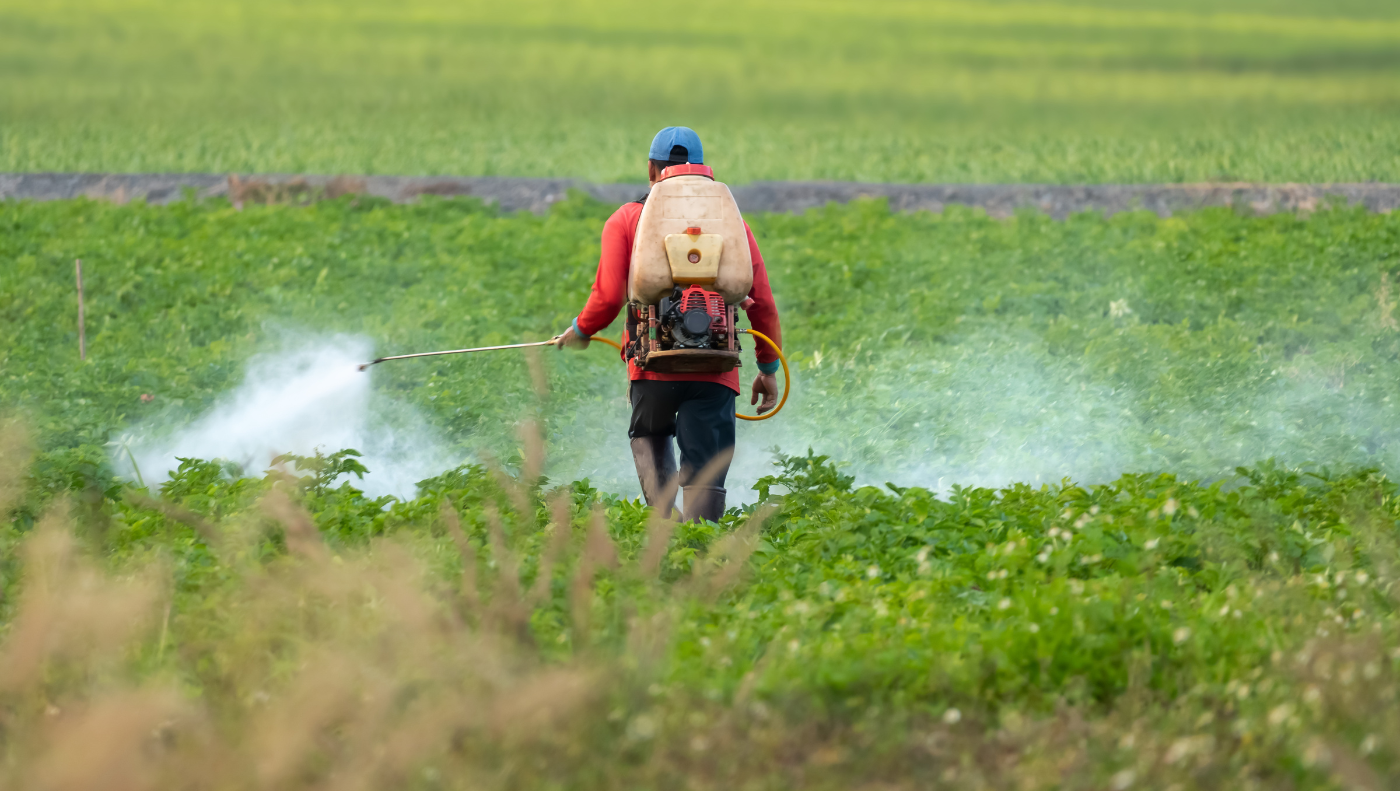
In a chilling new exposé, a groundbreaking report by the Route to Food Initiative has revealed that Kenya’s food supply is being poisoned at an industrial scale — with 76% of pesticides used by farmers classified as Highly Hazardous Pesticides (HHPs), posing lethal risks to human health and the environment.
The 2023 study warns that 63% of all pesticide products applied in Kenyan farms contain active ingredients so dangerous that they are already banned across Europe. Shockingly, 44% of all pesticide volumes used in Kenya are products that have been outlawed by the European Union due to “unacceptable risks” to human life and ecosystems.
“Kenya has become a dumping ground for deadly chemicals that wealthier nations have rejected,” says Dr. Silke Bollmohr, the lead researcher of the report.
Poisoning Our Daily Bread
Kenya’s staple crops — maize, wheat, coffee, potatoes, and tomatoes — are the most heavily contaminated:
- 89% of pesticides used on tomatoes are HHPs.
- 84% of pesticides on potatoes are HHPs.
- 83% of pesticides on maize are HHPs.
- 79% of pesticides on wheat are HHPs.
- 72% of pesticides on coffee are HHPs.
These toxic chemicals are not minor players. They dominate the production of the very food Kenyans eat every day.
Killer Chemicals in Almost Every Harvest
Among the most dangerous substances saturating Kenyan farms are:
- Glyphosate – Classified as “probably carcinogenic” by WHO.
- Chlorpyrifos – Linked to brain damage in children.
- Mancozeb – Associated with cancer and reproductive toxicity.
- Paraquat – So toxic it’s banned in over 30 countries.
- Imidacloprid – A neonicotinoid blamed for mass bee deaths worldwide.
All these are extensively used in Kenya — and all are already banned in Europe.
Even worse, the report found deadly residues in food sold in Kenyan markets:
- In Kirinyaga County, acephate, a powerful endocrine disruptor and possible carcinogen, was found in tomatoes at levels exceeding safe limits.
Corporate Giants Fuel the Crisis
The report names the culprits fueling this toxic tidal wave:
- Syngenta, Bayer AG, Corteva Agriscience, and UPL Limited dominate the market, selling pesticides that are 68% to 95% HHPs by volume.
Kenyan farmers spent $72.7 million on pesticides in 2020 — yet the safer alternative, biopesticides, made up only 2% of the market.
Even more damning: Kenyan farmers are economically trapped into buying toxic pesticides because they are cheaper per hectare than safer biopesticides — hiding the true social and environmental costs.
Public Health Nightmare
Kenya is paying the price in human suffering:
- Only 1 in 6 farmers wears full protective gear while spraying toxic pesticides.
- Only 15% of farmers store pesticides safely away from children.
Meanwhile, pesticide residue tests reveal:
- 46% of Kenyan fruits and vegetables have pesticide traces.
- 11% of the food exceeds Maximum Residue Limits (MRLs) set by the EU.
Kenyan citizens are unknowingly ingesting chemicals banned elsewhere — at every meal.
A Legal and Moral Outcry
Despite overwhelming evidence, Kenya’s regulatory reforms have stalled.
The outdated Pest Control Products Act (1982) remains the law, while the Pest Control Products Bill (2022) — intended to protect health and the environment — languishes in bureaucracy.
Global watchdogs, including the UN Special Rapporteur on Toxics, have condemned this practice as an affront to human rights and environmental justice.
“Allowing banned pesticides to flood Kenyan markets is a betrayal of public trust, a violation of the right to safe food, and an assault on future generations,” the report warns.
Experts Demand Immediate Action
The Route to Food Initiative urgently calls for:
• Phasing out all Highly Hazardous Pesticides, starting with the worst offenders.
• Enforcing Integrated Pest Management (IPM) to reduce chemical dependency.
• Making biopesticides affordable for all farmers — not just exporters.
• Holding agrochemical companies accountable for the deadly products they promote in Kenya.
“The time for polite conversations is over. We are facing a toxic crisis that demands bold political leadership and immediate public intervention,” says Dr. Bollmohr.
The Bottom Line
Kenya’s fields are fertile — but they are saturated with poison.
Without urgent reform, every meal could be a ticking time bomb.
The choice is stark: Ban the poisons now — or pay with lives later.

